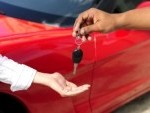 You’ve no doubt heard that a new car loses thousands of dollars in value the moment you drive it off the lot. In fact, it is rumored that the loss could be as much as a third of overall value. This may not be quite accurate, but once you sign on the dotted line and take ownership of the vehicle, there’s no denying that it automatically becomes worth a little less (because it can only be resold with the caveat that it’s had a previous owner). So before you go into debt to purchase a new car, you might want to consider that there are other options (certified pre-owned vehicles, for example). And knowing the facts about depreciation could just help you to make an informed decision. Here are a few tidbits you might not be aware of.
You’ve no doubt heard that a new car loses thousands of dollars in value the moment you drive it off the lot. In fact, it is rumored that the loss could be as much as a third of overall value. This may not be quite accurate, but once you sign on the dotted line and take ownership of the vehicle, there’s no denying that it automatically becomes worth a little less (because it can only be resold with the caveat that it’s had a previous owner). So before you go into debt to purchase a new car, you might want to consider that there are other options (certified pre-owned vehicles, for example). And knowing the facts about depreciation could just help you to make an informed decision. Here are a few tidbits you might not be aware of.
Accidents are a major cause of depreciation. When it comes to accidents, most people seem to be under the impression that as long as there is no frame damage and their vehicle is restored to original condition they won’t see any additional depreciation. Sadly, this is not true, especially with websites like Carfax that let anyone see your car’s history. The truth is that if all things are equal, a car that has a clean history is going to be worth more when it comes to resale.
You can cover the gap. Suppose you get into an accident and total your car to the point that it is beyond salvage. You’ll be looking forward to a check from your insurance company that will pay off your loan, allowing you to get a new car of equal value, but you could be in for a nasty shock. If your car is relatively new, the value your insurance provider pays out on isn’t likely to match up to what you still owe; leaving you making payments on a car that no longer exists. It is for this exact scenario that gap insurance was invented. So long as you have this specific coverage you’ll get the full amount of your loan even if it’s greater than the current value of your car.
Make and model matters. The perceived popularity of your vehicle can definitely make a difference in its ongoing value, and all kinds of factors can play a role here. If, for example, you purchase a new car that doesn’t sell very well, the value will drop more quickly. Or if your car ends up having a defect that requires a recall (fuel cells that catch fire?), you might see the value plummet. People may just think your model is ugly, or there could be a more popular vehicle introduced in your model year. You never know.
Trade-in versus private sale. You might think that you can make more money on a private sale, but these days you’re likely to get better value on a trade-in. This aspect of depreciation has something to do with the state of the economy, and as you’ve probably noticed, not too many people have the cash to purchase a car outright these days. However, a greater than average number are going to used car lots, raising demand for dealerships to take trade-ins. But the situation could change over time.
Less value = less cost. When the value of your car depreciates, it’s not all bad news. The less value your vehicle holds, the less you’ll pay for everything from registration to insurance, so you can finally start looking for the cheap auto insurance quotes you wish you’d been getting five years ago. And as soon as your warranty is kaput you can start taking your set of wheels to Jiffy Lube for inexpensive oil changes and to a local auto shop you trust for lower-cost fixes than those offered by the dealership.




1 Comment